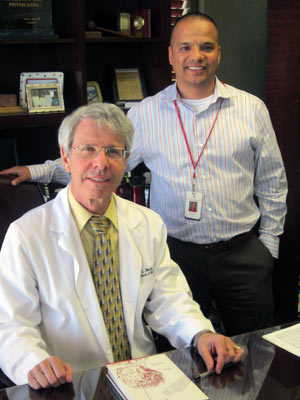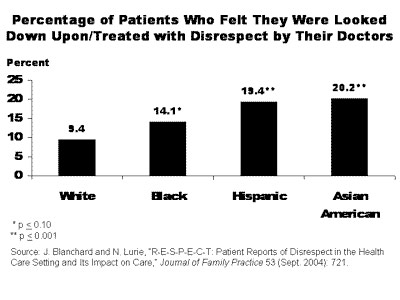 Jacob Caballero, TTP-OB-GYN, submitted one of two winning articles about respect in our ongoing series
of articles about our SPIRIT values.
Jacob Caballero, TTP-OB-GYN, submitted one of two winning articles about respect in our ongoing series
of articles about our SPIRIT values.
Everyone has their own definition for respect and how it pertains to their own lives. The Merriam-Webster dictionary defines respect as an act of giving particular attention or special regard.
But have you ever asked this about respect, “Which way does it go?” In other words, where do you direct your respect?
Most often, we think of directing our respect upward to bosses, elders or parents. But, before you can show respect upward, you must direct it inward.
Inward
A nurse can best serve her patient when she herself is healthy. Similarly, you can best show respect to others when you have healthy respect for yourself.
Clint Eastwood may not be your first source for information on respect; however, he had this to say on the subject: "Respect your efforts, respect yourself. Self respect leads to self discipline. When you have both firmly under your belt, that's real power."
When our efforts are worthy of respect, we will have more respect for ourselves. When we see the results of our efforts, we will want to discipline ourselves to always giving our best. That is inward respect, and as Clint would say, "that's real power."
Upward
Have you ever noticed in movies or TV shows the boss is always getting a bad rap? Bosses are almost never depicted as heroes. Sometimes this cultural mindset takes root in our own attitudes towards those to whom we answer.
We often look at supervisors with the idea they have more. More authority, more perks, more money. What we often forget are the other mores they often have. Perhaps they have more experience, more information about a situation, more responsibility for outcomes, or more liability for failures.
When we can direct upward respect, we are more likely to receive it. Failing to give it is a guarantee we will not receive it.
Even the Bible has some advice in directing our respect up: "Serve wholeheartedly, as if you were serving the Lord, not people, because you know that the Lord will reward each one for whatever good they do," Ephesians 6:7-8
Outward
Every day we have the opportunity to engage in outward respect.
At Texas Tech Physicians, we encounter various types of patients. Many are from different cultures, have different beliefs, or do not share our economic status. But one thing each patient has in common is that each one would want to be given respect.

According to one study, patients do not always believe respect is directed at them. The Journal of Family Practice reported on disrespect in health care and found that 3.4 percent of whites, 14.1 percent of blacks, 13.4 percent of Hispanics and 20.2 percent of Asians felt like they had been looked down upon or disrespected.
Respect can be shown in various ways. We can begin with the common courtesy of acknowledging each patient's presence. We can show them gratitude for choosing us as their health care provider. We even direct our respect to them when we honor the confidentially of their protected health information (PHI). Respect can go a long way to the way we care and treat our patients.
Showing respect to our patients plays a vital role in the success of Texas Tech Physicians.
One other important area that respect can be given is to one another as employees. From the employee that works in grounds maintenance all the way up to our CEO, each of us are as important as the other. All are needed in order to fulfill our vision of becoming a nationally recognized health sciences institution.
Take the time to get to know one another. Look and see where we have all come from. We each have a story to tell. When we take the time to know each other’s stories, we will learn to respect what each one has to offer.
Let's join together to show respect. Inward, outward and upward.
Jacob will receive an autographed copy of Dr. Berk’s book “Anatomy of a Kidnapping.” Submit your articles about innovation to brent.magers@ttuhsc.edu by 5 p.m. Friday for inclusion in next week’s contest.
